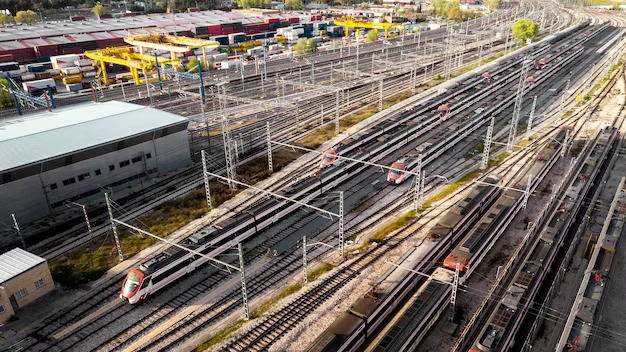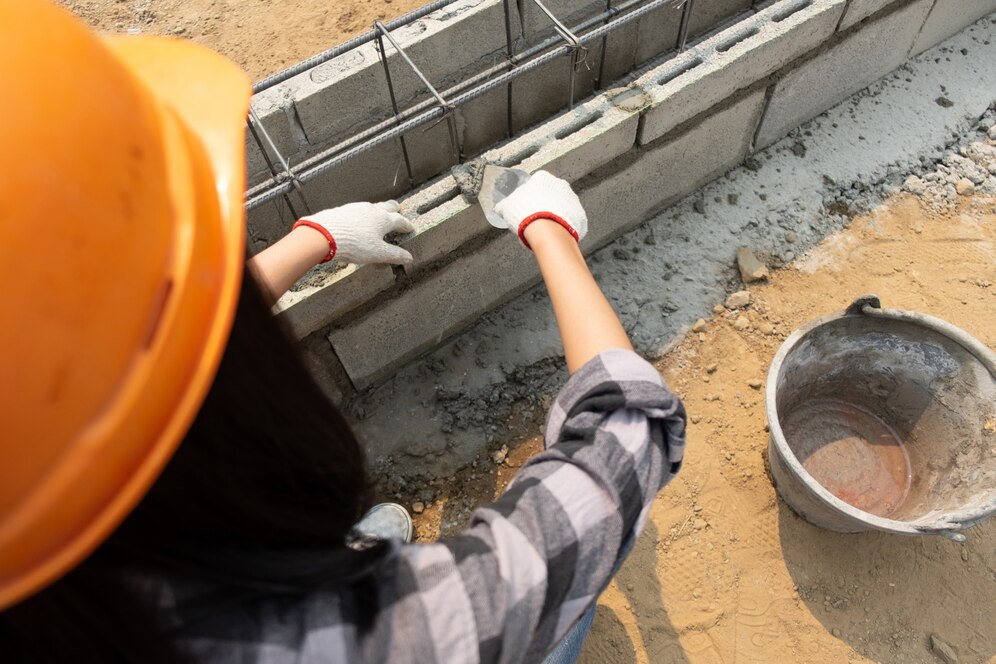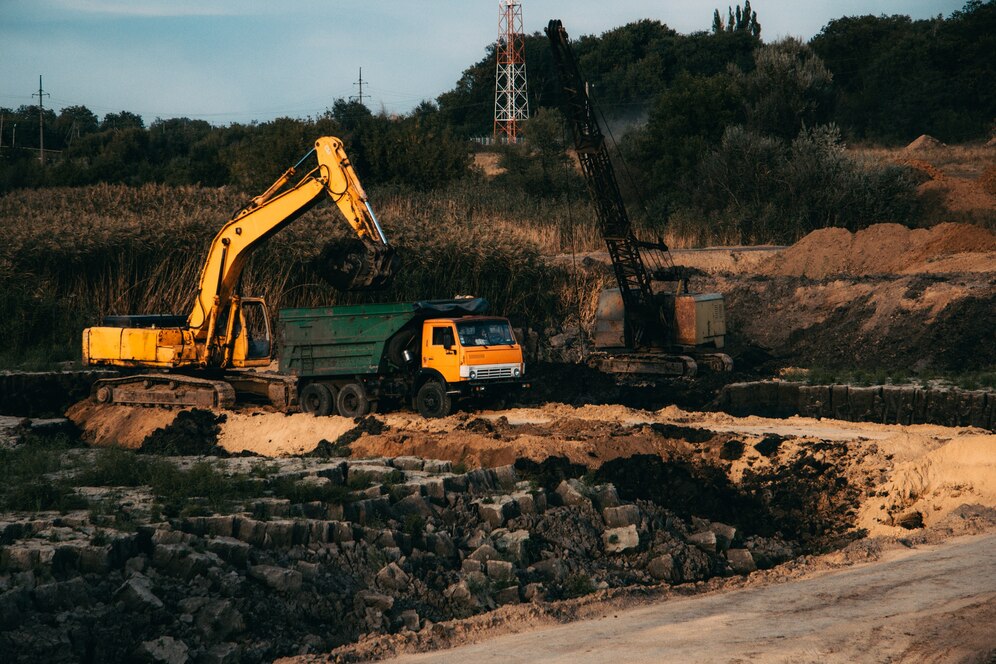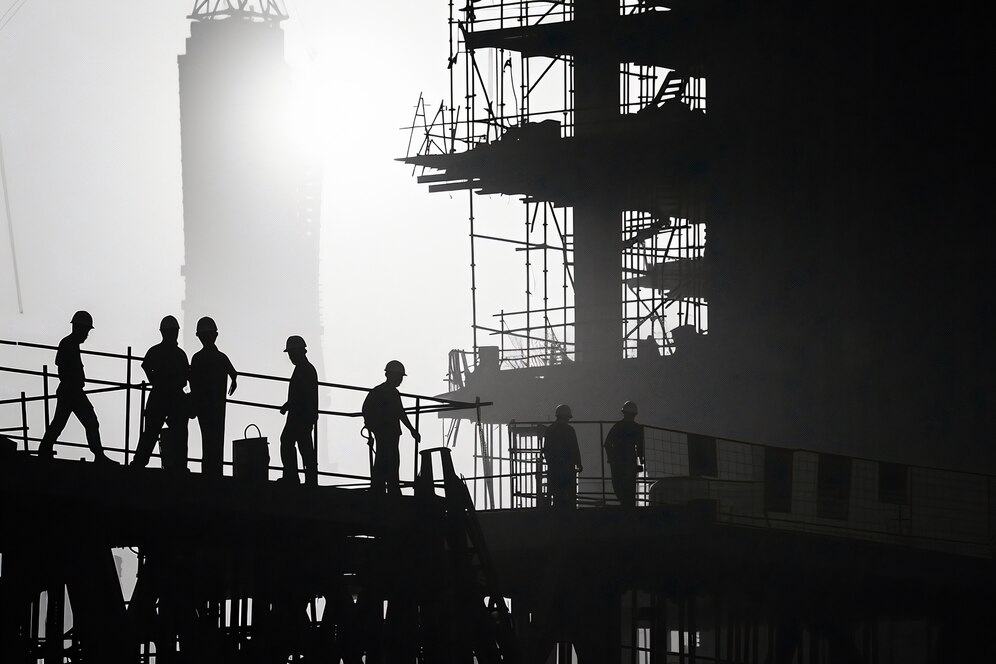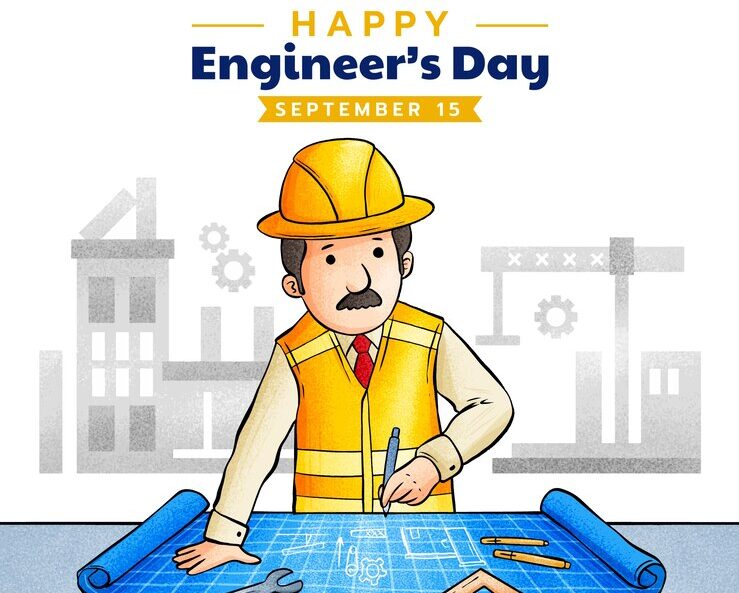Blogs
Filter by Category ▶️
Corrosion of steel bars is a critical concern in reinforced concrete elements, potentially undermining their serviceability and leading to structural failure. To combat this issue, a variety of measures can be implemented during construction to prevent reinforcement corrosion. High-quality, low-permeability…
Introduction From the moment we rise to the time we retire for the night, the spaces we occupy significantly shape our lives. Whether it’s our homes, workplaces, or other frequently visited locations, our surroundings profoundly affect our well-being and overall…
The real estate industry in India is undergoing a transformative phase, significantly influenced by the expansive growth of metro rail projects across various cities. Urbanization is on the rise, and infrastructure development has become a top priority, with metro projects…
Ensuring workplace safety is paramount in any construction project. From construction sites to manufacturing plants, maintaining a safe environment is crucial to prevent accidents and protect employees. One of the most effective ways to maintain a safe working environment…
Construction projects necessitate meticulous planning and execution to ensure their successful completion. One of the critical stages in this process is tendering, which involves selecting the right main contractor for the job. This article explores the intricacies of the…
Rice husk ash (RHA) plays a significant role in modern concrete construction, offering both economic and structural benefits. The first notable role of RHA is its use as a substitute for Portland cement, which effectively reduces the overall cost of…
Purchasing a home is one of the significant milestones in life, offering a sense of security and pride that renting cannot match. The process involves deliberation over various housing options: an independent home, a flat in a small apartment building,…
Changes are inevitable in any project. However, to keep the project on schedule and within its budget, these changes need to be effectively managed. A change order (or an amendment) is a mechanism that identifies, defines, and tracks these…
The permeability of concrete is a vital property that dictates the rate at which fluids penetrate a porous solid material. This characteristic is mainly determined by the size and connectivity of pores within the concrete matrix and the complexity of…
Real estate investment offers a plethora of opportunities for both short-term and long-term investors. Understanding the distinctions between these two strategies is crucial for maximizing returns and minimizing risks. This article explores the various facets of short-term and long-term real…
Every stage of the construction process is crucial to the project’s success – the handover phase is no different, but it comes with some unique challenges for everyone involved. Construction handover is like the finish line; everyone’s excited to…
Building a real estate portfolio can be a smart and effective way to diversify your investments, generate passive income, and build long-term wealth. However, constructing a solid portfolio requires careful planning and strategy. Investors must have a clear understanding of…
In today’s rapidly evolving construction landscape, modular construction has become an increasingly popular method for developers and builders looking to expand their projects efficiently and cost-effectively. This innovative construction technique has gained significant traction over the past decade due…
Concrete anchors are essential tools in construction, providing secure connections between structures and concrete surfaces. They ensure stability, handle various loads, and are crucial in both residential and commercial projects. This comprehensive guide explores the essential aspects of concrete…
In many urban centers worldwide, the demand for land and space is rapidly outpacing supply, a trend that does not exclude maritime hubs. The relentless expansion of commercial maritime traffic and activities in seaports, driven by the surge in…
Introduction In India, property disputes are a prevalent legal issue that often arise among buyers, sellers, landlords, tenants, and other stakeholders involved in property transactions. These disputes can be triggered by various factors, including disagreements over ownership, title, boundaries, possession,…
Green buildings have become a prominent trend in recent times, driven by increased awareness of environmental concerns, changing mindsets, demand for quality homes, and international trends. The growth of green buildings in India is noteworthy, as investors and buyers…
The installation process and methods of pile foundations are pivotal aspects of any construction project, holding as much importance as the design phase. Careful consideration and selection of installation techniques and equipment are essential to prevent damage to the…
Gifting property is a significant act, involving the transfer of ownership of one’s property to another through a legal instrument known as a gift deed. Before proceeding with gifting property, it is crucial to understand the implications and the legal…
In every industry, certain terms are frequently used without much thought to their meaning. One such phrase is “building automation system.” This term often comes up in facilities-related discussions, but what does it really mean? For those unfamiliar with…
Dragline excavators, often referred to as power shovels, have become indispensable in modern construction projects. Known for their ability to dig deep and swiftly, these machines are essential for tasks such as digging trenches, passages, and pits with remarkable…
Investing in real estate is a complex process that requires careful planning and consideration. This is especially true when it comes to buying agricultural land in India. A slight mistake can lead to numerous legal issues, which can affect your…
Construction waste management is becoming an increasingly important issue in India due to the rapid pace of urbanization and infrastructure development. As one of the largest contributors to waste generation in the country, the construction sector must address this…
Introduction: Lightweight Concrete is a specialized type of concrete that has numerous applications and benefits in construction. Its unique properties make it an ideal choice for various structural and non-structural purposes. In this comprehensive article, we will delve into…
Introduction: Purchasing property in India, whether for personal use or investment, involves a crucial legal process known as property registration. This guide provides an in-depth understanding of property registration, the laws governing it, and the step-by-step procedure involved. With property…
Introduction Effective management of the construction workforce is crucial for finishing projects on time and within budget. It’s estimated that nearly two-thirds of construction projects fail to reach completion within the estimated budget, with labor inefficiencies playing a significant…
What is Compaction of Soil? Soil compaction is a critical engineering technique that significantly impacts the structural integrity and longevity of construction projects. This foundational process involves the mechanical densification of soil, effectively reducing voids between soil particles, thereby enhancing…
Introduction The Pune Municipal Corporation (PMC) stands as a beacon of development and management in the vibrant city of Pune. Since its inception in 1950, PMC has been at the forefront of transforming Pune into a dynamic and flourishing urban…
Introduction The “Cost of Quality” is a pivotal concept in project management, signifying the total cost associated with achieving and sustaining high-quality standards in products or services. This encompasses all expenditures from preventing defects to fixing them, essentially framing…
Introduction A building venture brings together multiple contractors and service providers, creating inevitable complexities throughout its duration. With such a range of elements and variables converging, it’s essential to establish a cohesive plan to unite the diverse components of…
Introduction to Engineers Day Engineers Day is a tribute to the ingenious minds that have laid the foundations of our cities, transforming blueprints into towering skyscrapers that define the skyline. This special day is not just a celebration of…
Introduction Inheriting property in India comes with its own set of challenges, especially for Non-Resident Indians (NRIs) who must navigate through the legal intricacies from afar. Transferring the title of an inherited property is a critical step in asserting one’s…
Introduction The role of a civil contractor is pivotal in the construction industry. Civil contractors are the backbone of any construction project, serving as the coordinators and implementers of the designs created by architects and engineers. They are responsible…
Introduction The concept of a land survey number is central to real estate transactions and land ownership in India. This unique identifier, assigned by governmental authorities, is essential for accurately pinpointing and recognizing a specific parcel of land or plot.…
Introduction In the complex and evolving world of infrastructure development, the Public-Private Partnership (PPP) model emerges as a pivotal approach, blending the strengths of both public and private sectors. These partnerships, often aimed at large-scale projects, entail a nuanced…
Introduction The use of admixtures in concrete signifies a pivotal advancement in modern construction, revolutionizing the way concrete is perceived and utilized. Admixtures, a diverse range of chemicals added to concrete mixtures, serve to enhance and manipulate its properties…
Introduction to Ancestral Property Ancestral property, a term deeply rooted in cultural and legal significance, particularly within Hindu families, represents more than just material wealth. It embodies a legacy, carrying immense sentimental value passed down through generations. This concept of…
Introduction In project management, the integration of Project Evaluation and Review Technique (PERT) and Critical Path Method (CPM) is pivotal for enhancing efficiency in planning and control. PERT and CPM are indispensable tools that guide construction managers through the…
Introduction Planned Preventive Maintenance (PPM) is a crucial strategy in building management, focusing on regular, scheduled maintenance activities to prevent potential failures and prolong the life of building infrastructure. By implementing PPM, property managers can identify and address minor…
Introduction Value Engineering is a pivotal concept in the construction industry, encapsulating a blend of systematic tools and innovative methodologies. This approach is leveraged by project teams to strategically navigate the constraints of cost, quality, and scope within construction…
What is Studio Apartment A studio apartment, often a symbol of modern, minimalist living, is a compact and efficient housing solution ideal for individuals valuing simplicity and functionality. This living space combines the bedroom, living room, and kitchen into a…
Introduction Building bye laws serve as fundamental tools in urban planning, shaping the very skeleton of our cities. These regulations, often set by local municipal bodies, ensure that construction activities adhere to safety standards, optimize land use, and protect…
Introduction Project Stakeholder Management involves identifying and analyzing individuals, groups, or organizations that might influence or be affected by a project. This includes understanding their expectations and assessing how they impact or are impacted by the project. The goal…
Introduction At the heart of successful construction projects lies effective Project Procurement Management. This crucial aspect encompasses the methodologies employed to procure essential products, services, or results that are not available within the project team. It extends to the…
Introduction Snagging in construction serves as a crucial quality assurance process, typically conducted before the final acceptance of a project. This phase involves identifying and documenting any minor defects, unfinished work, or areas that do not meet the agreed…
What is a Succession Certificate? A Succession Certificate is a crucial legal document, often issued by a civil court, that serves as a testament to the authenticity and authority of the legal heirs of a deceased person. It plays…
Introduction Decision tree stand as a cornerstone in the landscape of project management tools, offering a systematic and visual framework for decision-making. Decision tree are particularly beneficial in scenarios where a series of decisions lead to a range of…
Introduction When it comes to construction or home improvement, plastering is an essential aspect that contributes significantly to the structural integrity and aesthetic quality of buildings. One critical element in ensuring the longevity and durability of plaster is chicken mesh.…
What is Carpet Area? Carpet area is a term frequently used in real estate to demarcate the exact usable area within an apartment or a residential unit. It refers to the space where one could theoretically lay a carpet, covering…
Introduction In project and construction management, a Risk Breakdown Structure (RBS) is a fundamental tool used to identify, categorize, and manage risks systematically. This hierarchical framework allows project managers to drill down from general risk categories to more specific…
Introduction Reinforced Cement Concrete (RCC) forms the backbone of modern construction, providing the necessary strength and resilience that buildings and infrastructures demand. In an era where structural integrity cannot be compromised, understanding the intricacies of RCC construction is paramount. This…
Introduction The residential certificate is an essential document that holds lifetime validity, symbolizing the holder’s status as a long-term resident of a state or country. This document, issued by state government authorities such as a sub-divisional officer or taluk officer,…
Introduction Understanding Project Communications Management is fundamental in Project and Construction Management, where the stakes are high and the margins for error are slim. Effective communication management acts as the nerve center, coordinating various project elements from inception to completion.…
Introduction Capital gains are profits derived from the sale of ‘capital assets’ like houses, land, stocks, mutual funds, jewelry, trademarks, and more. These gains are treated as income, necessitating the payment of Capital Gains Tax in the year the asset…



